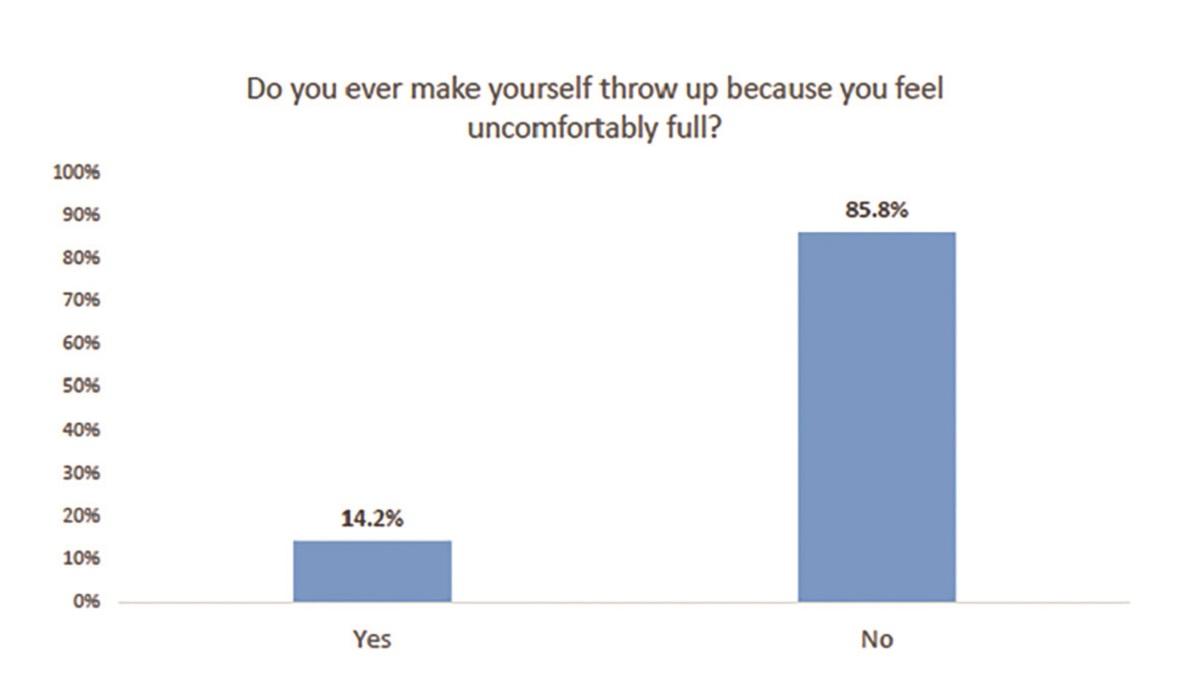
Two in five people feel they do not have control over how much they eat and just under one in six has made themselves throw up “because they felt uncomfortably full”, according to a study on eating disorders in Malta.
The study paints a picture of a society generally aware of the symptoms of eating disorders and that they can be life threatening – but of people who do not necessarily recognise these signs in themselves or those close to them.
The study was carried out in January by statistician Vince Marmarà for the University of Malta’s Faculty for Social Wellbeing. Some 400 people between the ages of 15 and 50 took part in the survey, a sample representative of the population.
The vast majority, 93 per cent, had heard of the term ‘eating disorder’ with the most recognised disorders being anorexia, bulimia, binge-eating and obesity.
“Everyone can be susceptible to eating disorders but certain groups are more at risk”
When asked if they knew anyone with an eating disorder, 14% of respondents said they did, while 73.4% did not. A small 2.9% said the person with the disorder was “myself or a close family member”. Five per cent said they suspected themselves or a close family member had an eating disorder.
However, when asked if they had experienced some of the recognised symptoms of eating disorders, a larger percentage said they had. Asked if they ever made themselves throw up because they felt uncomfortably full, 14.2% said they had. This was more common among the youngest age group with 39.3% of 15- to 17-year-olds saying they had made themselves vomit.
Asked if they ever worried they lost control over how much they eat, 41.7% replied ‘yes’. The concerns were highest among the 15- to 17-year-olds with 64.3% worrying compared to the 18-30s (42.3%), 31-40s (37.4%) and 41-50s (40.8%).
Psychiatrist Anton Grech said that in line with responses, the most common eating disorders in Malta are binge-eating, followed by anorexia nervosa and bulimia.
Grech noted that, while the awareness about eating disorders was positive, “it is clear that more needs to be done to increase this awareness, especially regarding the fact that these issues can lead to related illness that can also be fatal”.
He said the study confirms the research and clinical experience that the younger age group are the more vulnerable groups to eating disorders.
“Everyone can be susceptible to eating disorders but certain groups are more at risk than others. These include females, those with tendencies for perfectionism, those in professions where body image is very important, those with a history of abuse and childhood obesity. Males are gradually picking up in rates to females,”he said. A weight-reducing diet that goes out of control is one of the most common behaviours that brings on an eating disorder, he added.

Respondents were also asked if they believed they were fat when others said they were too thin – 34% said ‘yes’ and 42.7% said food dominated their life.
Results showed that the majority (96%) strongly agreed or agreed that eating disorders could be life threatening and 75% agreed or strongly agreed that “not eating enough to sustain oneself, throwing up after eating, or over-exercising” are all symptoms of eating disorders.
Source: TimesOfMalta.com



